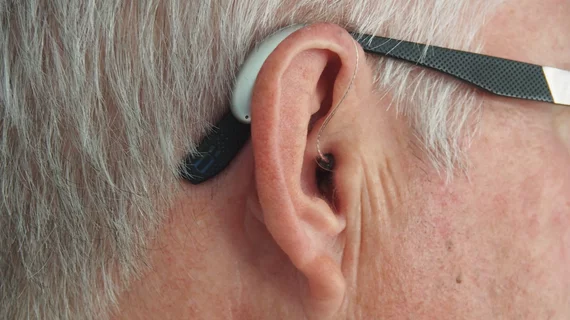What’s that you say? AI is in hearing aids—and AR isn’t far behind
A hearing aid manufacturer founded in the 1950s has introduced what it says is the first use of AI to optimize auditory assistance for the hearing impaired in real time.
In announcing the application, Denmark-based Widex describes its system as capable of pinpointing user preferences for sound settings using only 12 or so comparisons. Without the algorithms, the company says, the process would take more than 2 million tests.
“When applied, the settings create a personalized hearing experience based on context, content and intent,” Widex claims. “Users can store the settings as programs in their smartphones and activate them throughout the day, such as when they’re at work, at the supermarket or in their kitchen.”
Further, these programs can be securely stored in the cloud to help “enhance the hearing experience of other users.”
As it happens, the Widex product release coincides with the publication of a paper in Ear and Hearing in which researchers at Facebook Reality Labs suggest augmented reality platforms used with hearing aids “may offer ideal affordances to compensate for hearing loss.”
Such AR platforms, Lunner et al. write, could also help medical science better understand the role of hearing in everyday life. The paper is available in full for free.

